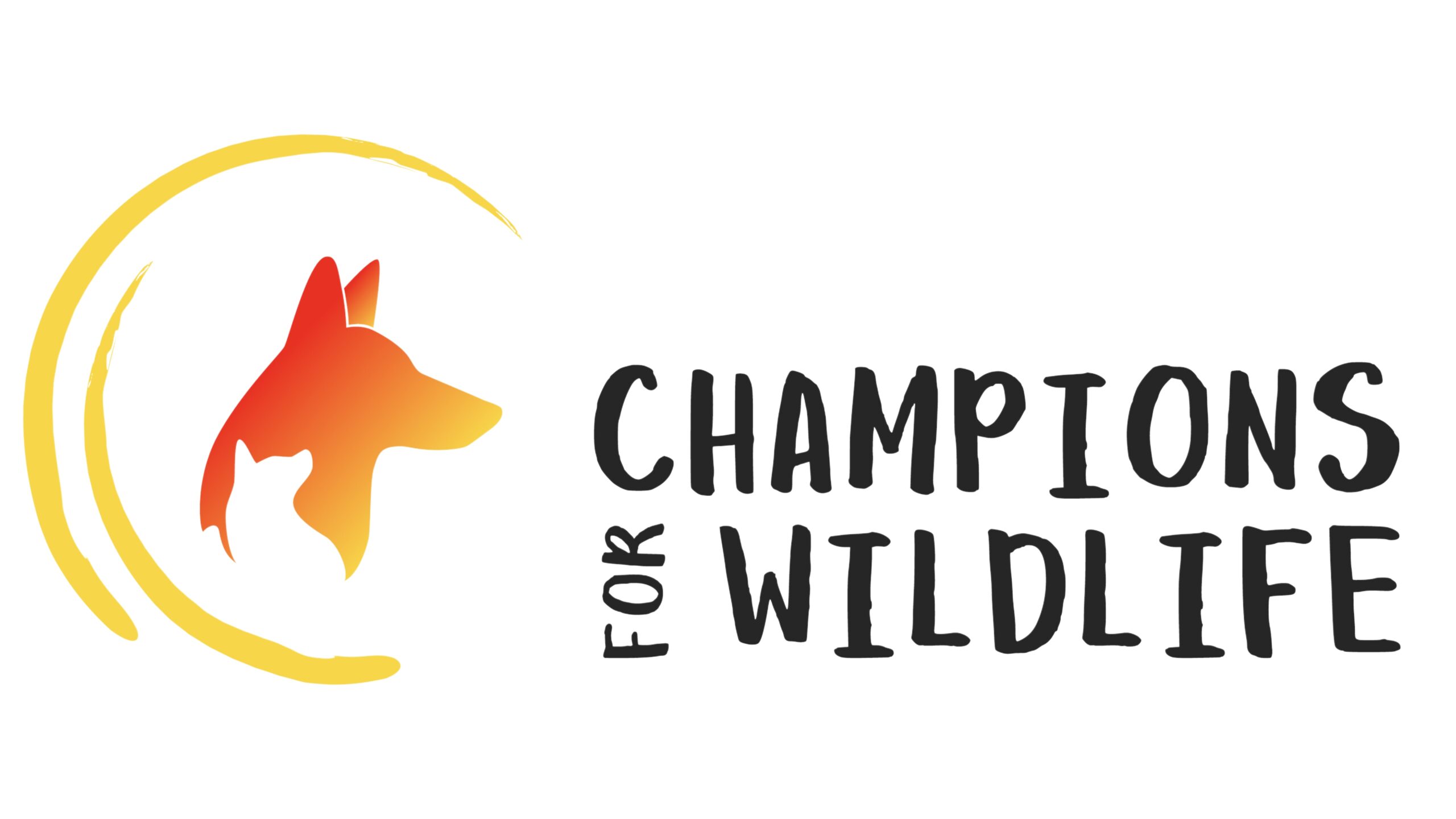Incredible Skunk Spray. Everything You Want To Know
Incredible Skunk Spray. Everything You Want To Know
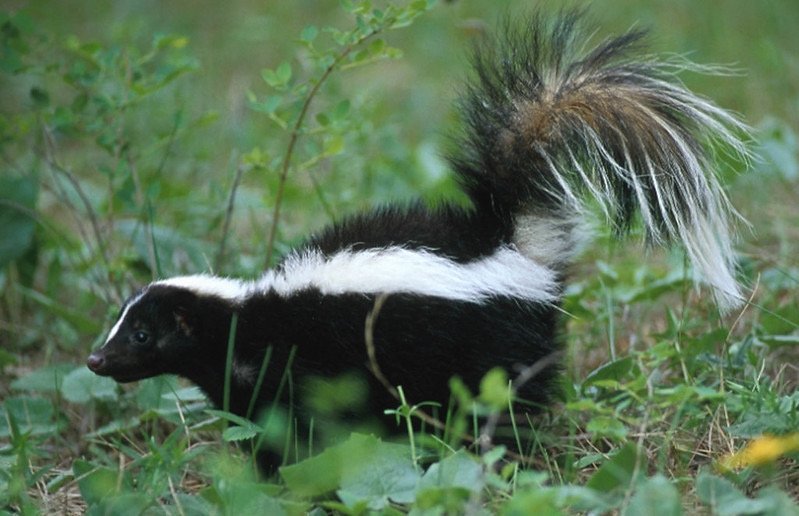
How far can a skunk spray? Photo: Rikki’s Refuge/Flickr
Skunk spray. Ever wonder about it? Do you know skunks only spray when they are scared? But first, let’s delve into why it smells so bad. And how often does a skunk spray? Or even, how does a skunk spray?
Lots of questions for the curious mind. So let’s see what we can learn about this misunderstood animal.
The down & dirty on skunk spray
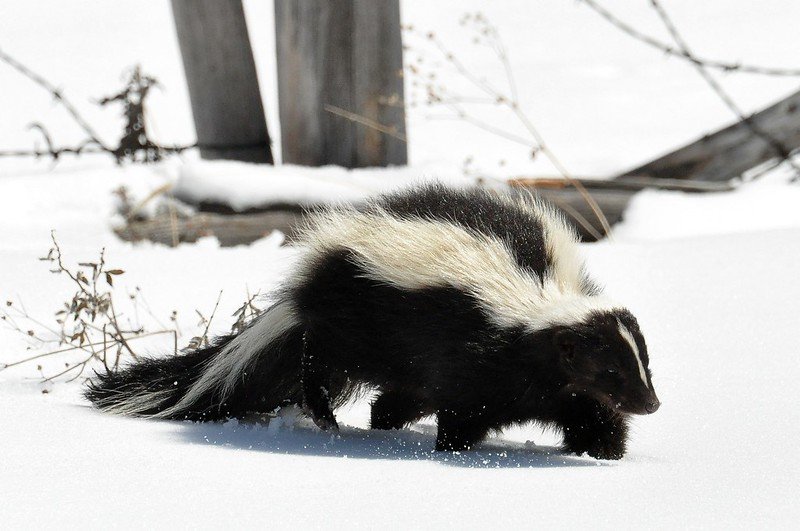
What exactly is skunk spray? Photo: David Larson/Flickr
We always know when a skunk is in the neighborhood. You can smell it. And what a terrible aroma!
No wonder, the liquid a skunk sprays is an organic compound called a thiol. And guess what it smells like? Rotten eggs.
The liquid is produced in two anal glands under its tail. But how does the skunk project the smelly stuff?
The skunk’s spray is its secret weapon! One lift of its tail and you or maybe your dog will smell like rotten eggs. And yes, the skunk can aim it. They have a nipple-like protrusion on each anal gland that allows for a precise stream of noxious fluid.
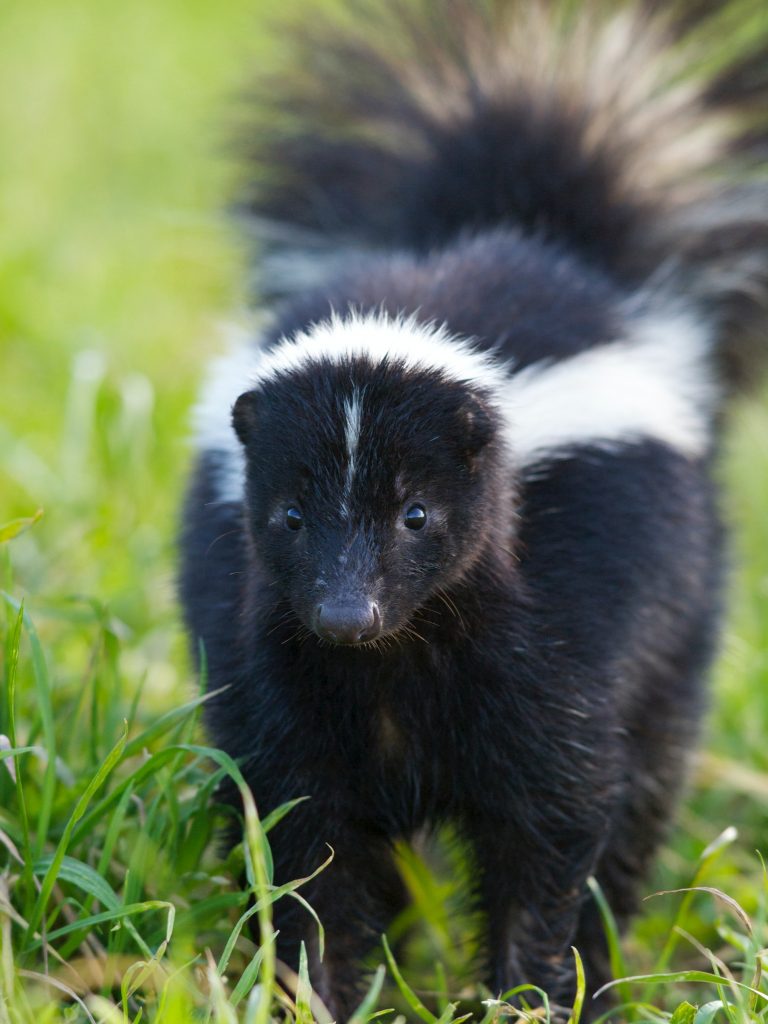
Skunk spray smells like rotten eggs. Lovely!
Why do they spray?
Skunks spray when they are frightened. It could be a person, curious dog or predator looking for a meal.
But first, they give a warning. They will stomp their feet, scratch the ground and hiss to make you go away. Spotted skunks will even do a handstand to warn you.
If none of these tactics work, you just might get sprayed! And a skunk can accurately spray up to 15 feet, so keep your distance!
And one interesting tidbit, skunks rarely spray each other. They reserve their secret weapon for other species.
How often can skunks spray?
![]()
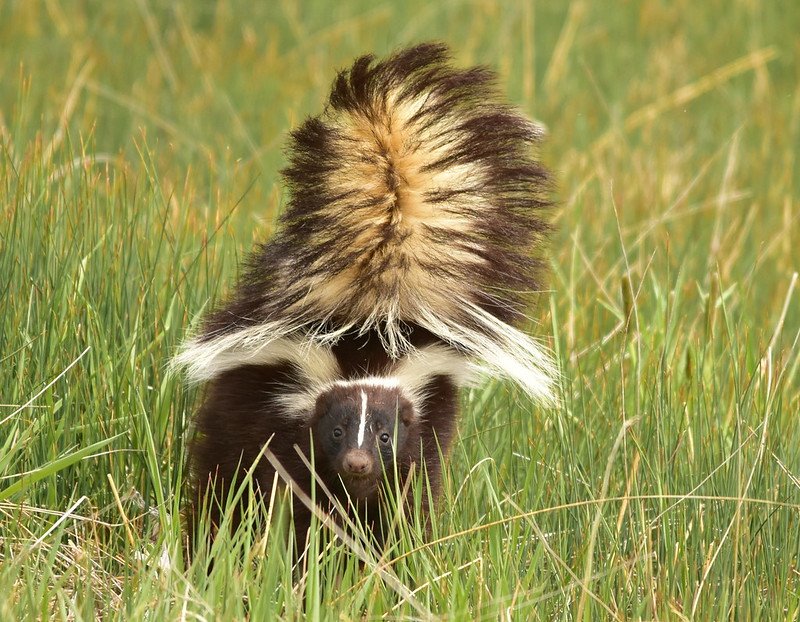
How often can skunks spray? Photo:Tom Koerner/ USFWS/Flickr
So one question I have is how often can skunks spray? Anytime they want?
And the answer would be no. Skunks can spray up to 6 times in succession before running out of their smelly weapon.
But skunks only want to use their precious weapon as a last resort. Once they have used all their liquid, it can take up to 10-14 days to refill the glands. Meanwhile, they are completely defenseless against predators in that 2 week period. Yikes! Not good for the skunk!
And what does this gunk look like? Picture a yellow oily substance that sticks to skin, clothes and your dog’s fur. Yuk.

Skunk spray smells like rotten eggs. Lovely!
Can skunk spray kill a dog?
Is the spray toxic? Can it kill a dog? Or a person?
No, no & no. Skunk spray smells awful, but it is not going to kill you.
Of course, it depends on who you ask. Google any animal trapper/remover and they will tell you all about the dangers. Well, of course, they want you to pay them to remove the skunk!
Then look at wildlife rehabbers or vet clinics, and they generally say the fluid is not harmful unless it gets in the eyes or is ingested. Even, then you won’t die from it.
Do baby skunks spray?
![]()

Can a baby skunk spray you? Photo: julie rohloff/Flickr
Surely a baby skunk can’t spray you? Ah, but they can. Even when they are just a few weeks old, some babies can spray a musky smell. The older they get, the better their aim.
By three months, the kit (baby skunk) will be able to spray, although their aim may still need some improvement. By six months, when they go out on their own, they have pretty accurate spraying abilities.
How do you get skunk spray off your dog?

What do you do if your dog gets skunked? Photo: OakleyOriginals/Flickr
So your dog has been skunked. Now what?
First, please don’t use tomato juice. for skunk spray removal. This is an old myth and you will end up with your dog smelling like rotten eggs and tomato juice. Ugh!
Here’s the best recipe for de-skunking your dog, or you for that matter.
Dog Skunk Shampoo
1 qt 3% Hydrogen Peroxide
1/2 C baking soda
1 t liquid soap
Mix all these together and shampoo your dog with it and then rinse well. You may need to repeat it several times. Your dog may still smell, especially when it gets wet, but it will be a big improvement.
If your pet is in any kind of distress such as vomiting, call your vet or emergency clinic.
And if you find this information valuable in getting rid of skunk spray odor, we hope you will make a tax-deductible donation to help save our misunderstood underdog animals, like skunks. We so appreciate your support!
To learn more about skunks or their spray?
If you want to learn more about skunks and why the Great Horned Owl is their number one predator, read our blog “Skunks”. Or if you want to learn more about their other predators, check out our What in the World Do Wolves Eat? Think Blueberries.
To delve a little deeper into the smelly spray, check out “Ask Smithsonian: What Makes Skunk Spray Smell So terrible?”
We Are Candid Certified!

P.O. Box 128
Lynn, North Carolina, 28750
Champions for Wildlife is a registered 501(c)(3) nonprofit charitable organization.
EIN #87-4584220
NEWSLETTER SIGN-UP
